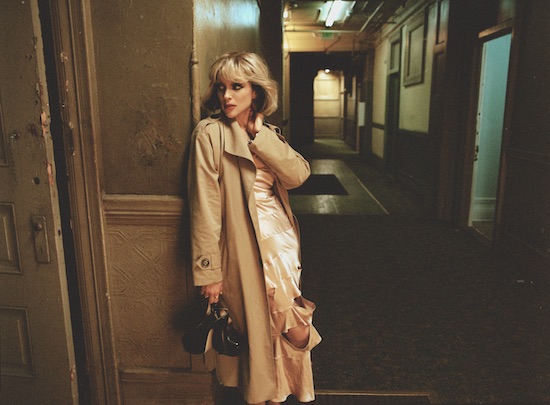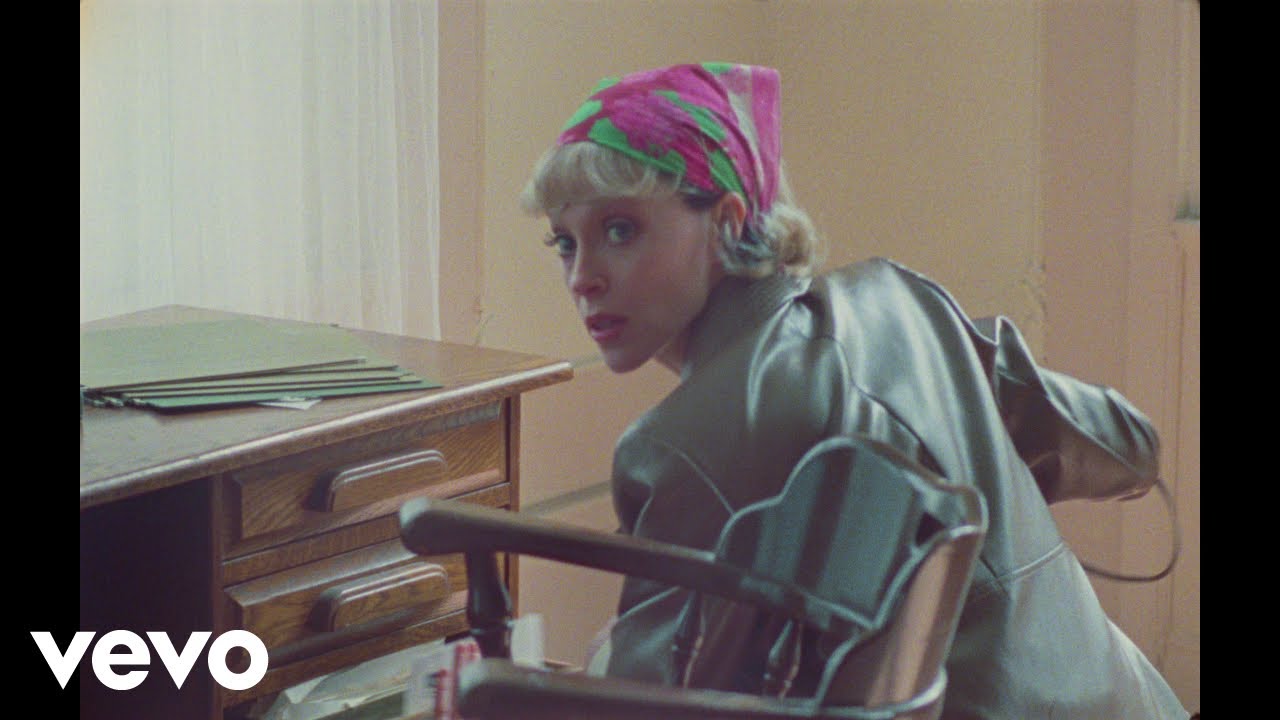Photo by Zackery Michael
There is a certain kind of person who thinks that living in New York is an adequate substitute for a personality. Once every five years, Olivia Laing logs on from Surrey to suck the life out of the work of a slew of long-dead New York-based artists and remind us that she, too, was briefly unhappy there. Fran Lebowitz – bad-tempered, chic – tortures her audience with a high budget seven-parter for Netflix (Netflix!) where she gripes and gripes from her Chelsea condo that when the 70s ended, the fun did too.
St. Vincent (real name Annie Clark) is obviously not immune from this brand of metropolis mania. In the endless pre-release interviews and promos much is made of how this album is a pure wedge of “New York Funk”; “sleazy… gritty… grimy”. My god, don’t we get it. In an album that is more schtick than sleaze, the listener wades through endless references to a downtown that only exists in the imagination of wet-eyed Scorsese fanatics: dazed blondes with drug problems, absent, brooding daddies, these mean and horrible streets. St. Vincent, was it sleazy when you collaborated with Veuve Cliq to open a pop-up champagne bar in Covent Garden? I just want to know.
I’m being tart. St. Vincent is obviously talented – madly so. I saw her on the Masseduction tour, where she gave an uncannily sexy, controlled performance, all absurdist videos and latex boots. And this is kind of her thing, I guess – moving quickly from personae to personae with each album. I just don’t know how well this one lands. Lyrically, it feels on the nose (“like the heroines of Cassavetes, I’m under the influence daily”), and sonically it feels too overdone, too slickly-produced to get the desired sound, the sort of loose, bluesy quality she’s obviously looking for.
The album is at its best when she moves away from the snarling Taxi Driver spiel and moves the album into a more – forgive me – feminine direction. ‘Live in the Dream’ has a gorgeous, woozy quality: sitars, cooing vocals, rushing into a soaring chorus. Subtle, barely there church bells in the background – what a weird touch. So good. ‘The Melting of the Sun’ makes brilliant use of a soul choir, and Clark sounds tired and rueful, which works for a track preoccupied with – you guessed it – a host of 70s New York “down and outs”. At least St. Vincent’s ‘Candy Darling’ is more flattering and generous than Lou Reed’s ‘Walk on the Wild Side’. That’s a sleazy song – and it’s cruel. Why ape that?
There are, of course, stand-out tracks. ‘My Baby Wants A Baby’ is brilliant, funny, and feels kind of tragic. It starts relatively stripped-back, vocals plaintive and mocking: “My baby loves me like a saint / My baby hates when I’m away / My bay-bee wants a baaaaybe / How can I go wrong? … What in the world would my baby say? / I’ve got your eyes, and your mistakes”. It moves into full-blown thrashing around and crying on stage territory – a hard, repetitive crescendo, horns, wailing. “How could it be wrooooo-uh-ooooh-ong!” Pleasingly melodramatic and a great foil to Clark in distant-male-genius mode: “my baby’s closer than a shave … I wanna play guitar all day / make all my meals in microwaves / only dress up if I get paid”. Very fun.
‘Somebody Like Me’ is lovely, and calls back the gentle sound and lyrical sharpness of her debut, Marry Me. She has a wonderful vocal range – moving quickly from a deep, sonorous murmur to a high-pitched plea that you want "somebody like me." Here the whole 70s bag plays off – it feels cinematic, a song for setting montages to. ‘Down and Out Downtown’ gets it right, too – sexy, breathy vocals, legitimately very funky bass. A drifting, romantic chorus, too – languorous movie music.
But still – and God forgive me – there are a couple of real clangers on here. Jack Antonoff produces hits, which isn’t to say that he produces great music. ‘Down’ and ‘At the Holiday Party’ both get the Antonoff treatment, which is to say that ‘Down’ sounds neurotically tightly-produced with too much going on, whilst ‘At the Holiday Party’ has more than a touch of the Pollyana to it.
‘Pay Your Way in Pain’ and ‘Daddy’s Home’ (again – hands off, Antonoff!) both tumble headlong into Carry On territory – endless panting, squelching guitar, and self-consciously naughty lyrics. ‘Daddy’s Home’ sees Clark visiting her father – “inmate 502” – in the clink: “you’ve still got it in your government-green suit…” Clark teases, before she yelps like a hyena. Steady on, ladies. To get to the overground station or big Sainsbury’s, I have to walk past a near life-size poster of Clark, eyebrow cocked, bearing the legend "Who’s Your Daddy?" I feel like the woman is practically harassing me at this stage.
Dad gags aside, I could never bring myself to be properly hostile to anything St. Vincent brings out. I am – tragically – a fan, which makes me lazily uncritical of anything she does because I could easily, at a moment’s notice, reel off a Desert Island Discs style top-ten tracks (‘Krokodil’; ‘The Party’; ‘Chloe in the Afternoon’; I really could go on). She’s fast-moving and exciting. She gave us that dizzyingly hot duet with Dua Lipa. What more do you want? I like that she lurches from persona to persona. I love that she exclusively goes out with super-models. And I really don’t care about the champagne bar. Honestly, I don’t.
The more I listened to this album to write this silly, bitchy review, the more I liked it; the more forgiving I felt towards the OTT production and schmaltzy lyrics. I don’t believe for a moment that someone as obviously hellbent on technical brilliance as Clark has the capacity to put out a spontaneously loose, dirty, blues-inspired album, unpolished and restless. If you want to think about grubby late mid-century New York, go and read Just Kids or something. If you want a high-production, catchy album that’s cheesy, fun, and occasionally a bit naff, buy Daddy’s Home.




